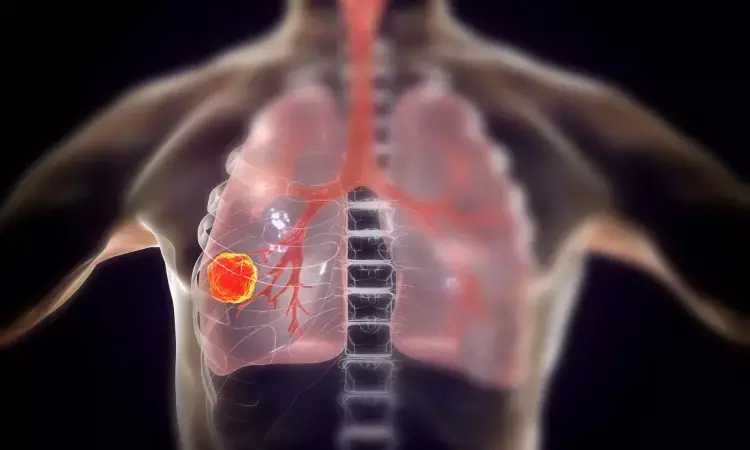- Home
- Medical news & Guidelines
- Anesthesiology
- Cardiology and CTVS
- Critical Care
- Dentistry
- Dermatology
- Diabetes and Endocrinology
- ENT
- Gastroenterology
- Medicine
- Nephrology
- Neurology
- Obstretics-Gynaecology
- Oncology
- Ophthalmology
- Orthopaedics
- Pediatrics-Neonatology
- Psychiatry
- Pulmonology
- Radiology
- Surgery
- Urology
- Laboratory Medicine
- Diet
- Nursing
- Paramedical
- Physiotherapy
- Health news
- Fact Check
- Bone Health Fact Check
- Brain Health Fact Check
- Cancer Related Fact Check
- Child Care Fact Check
- Dental and oral health fact check
- Diabetes and metabolic health fact check
- Diet and Nutrition Fact Check
- Eye and ENT Care Fact Check
- Fitness fact check
- Gut health fact check
- Heart health fact check
- Kidney health fact check
- Medical education fact check
- Men's health fact check
- Respiratory fact check
- Skin and hair care fact check
- Vaccine and Immunization fact check
- Women's health fact check
- AYUSH
- State News
- Andaman and Nicobar Islands
- Andhra Pradesh
- Arunachal Pradesh
- Assam
- Bihar
- Chandigarh
- Chattisgarh
- Dadra and Nagar Haveli
- Daman and Diu
- Delhi
- Goa
- Gujarat
- Haryana
- Himachal Pradesh
- Jammu & Kashmir
- Jharkhand
- Karnataka
- Kerala
- Ladakh
- Lakshadweep
- Madhya Pradesh
- Maharashtra
- Manipur
- Meghalaya
- Mizoram
- Nagaland
- Odisha
- Puducherry
- Punjab
- Rajasthan
- Sikkim
- Tamil Nadu
- Telangana
- Tripura
- Uttar Pradesh
- Uttrakhand
- West Bengal
- Medical Education
- Industry
Dual-energy CT can assess physiologic changes after lung cancer surgical resection

According to an accepted manuscript published in ARRS' American Journal of Roentgenology (AJR), metrics derived from dual-energy CT (DECT) can provide insight on physiologic changes after lung cancer surgical resection, beyond the information provided by pulmonary function tests (PFTs) and conventional CT.
"DECT depicts patterns of lung volume and perfusion changes after lung cancer surgery, depending on surgical approach (lobectomy vs. limited resection) and tumor lobar location," wrote corresponding author Young Jin Kim, MD, PhD, from the Research Institute of Radiological Science at Korea's Yonsei University College of Medicine.
In this AJR accepted manuscript, 81 patients (38 men, 43 women; mean age, 60.5 years; lobectomy in 43, limited resection in 38) awaiting lung cancer resection surgery between March 2019 and February 2020 were included. Patients underwent thoracic DECT and PFT evaluation preoperatively and 6 months postoperatively. Pulmonary lobes were segmented, and lobar volume and perfusion ratios-both relative to whole-lung values-were computed. Perfusion measures reflected DECT-derived iodine content. Patients then completed 6-month postoperative quality-of-life questionnaires.
Ultimately, lung perfusion ratio increases were greater after lobectomy than limited resection for ipsilateral nonresected lobe(s) (39.9±20.7% vs 22.8±17.8%) and contralateral lung (20.9±9.4% vs 4.3±5.6%). After right lower lobe lobectomy, the largest postoperative increases in lung volume ratio occurred in the right middle lobe (44.1±21.0%), whereas the largest postoperative increase in lung perfusion ratio occurred in the left lower lobe (53.9±8.6%).
Noting some postoperative changes in DECT-derived volume and perfusion parameters showed a correlation with patient-reported postoperative quality-of-life scores, "the findings indicate a potential role of DECT-derived metrics for understanding the variable physiologic impacts of lung cancer resection surgeries," the authors of this AJR accepted manuscript reiterated.
Reference:
Young Joo Suh, Chang Young Lee, Suji Lee, Ha Eun Kim, and Young Jin Kim, https://www.ajronline.org/doi/10.2214/AJR.22.28450
Dr Kamal Kant Kohli-MBBS, DTCD- a chest specialist with more than 30 years of practice and a flair for writing clinical articles, Dr Kamal Kant Kohli joined Medical Dialogues as a Chief Editor of Medical News. Besides writing articles, as an editor, he proofreads and verifies all the medical content published on Medical Dialogues including those coming from journals, studies,medical conferences,guidelines etc. Email: drkohli@medicaldialogues.in. Contact no. 011-43720751


